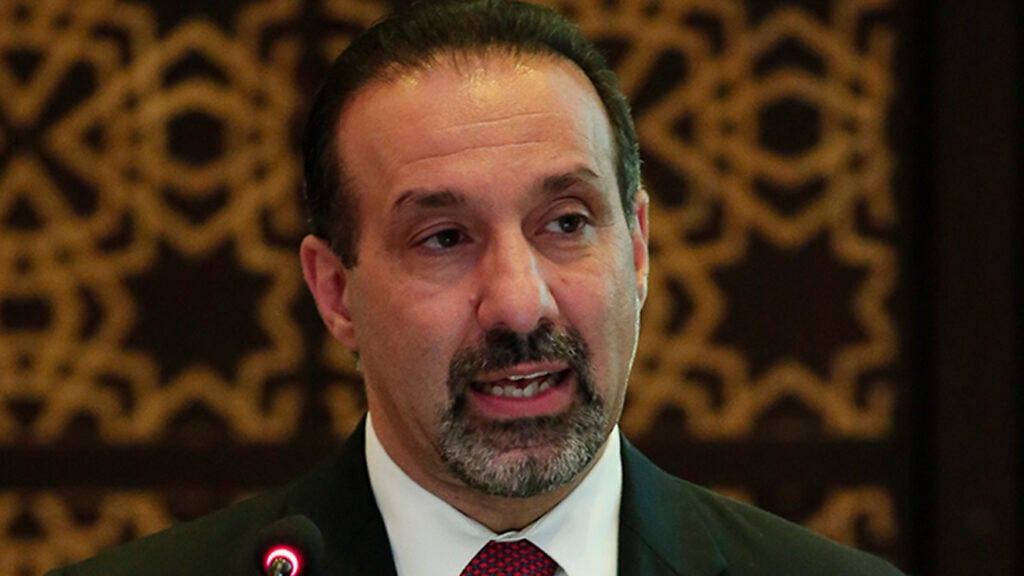Launch of Groundbreaking Research into Human Rights Treaties in the GCC

The outcome of a groundbreaking research initiative on the subject of human rights in the GCC was shared at a presentation and report launch event on 14 September, 2014 at the Intercontinental Hotel in West Bay Lagoon, Doha. The research findings presented stem from the first comprehensive human rights law project that the Qatar National Research Fund (QNRF) has ever funded and the first academic work that examines the domestic processes leading up to the ratification of human rights treaties in the GCC, the status of reservations, and the domestic effects of these treaties on the political, judicial and societal levels in the GCC states. The research project is the collaborative effort of four academic institutions: Georgetown University Qatar (GU-Q), Koç University (Turkey), the University of Oxford (United Kingdom), and Qatar University.
Dr. Mehran Kamrava, Professor and Director of the Center for International Regional Studies (CIRS) at GU-Q and Co-Lead Principal Investigator of the project explained the reasons for pursuing this project, saying “We submitted our project proposal to QNRF because we believe it is aligned with the aims of the NPRP to fund research benefitting the nation and region. This research also raises Qatar’s profile within the international research community due to the fact that despite the increased number of treaty ratifications regionally, there were no existing studies of GCC states’ ratification of international human rights treaties and their effects domestically, prior to our research.”
Commenting on one outcome of the research, Dr. Nazila Ghanea of Oxford University and Co-Principal Investigator of the project, said “GCC states have been an important part of the trend towards ratification of international human rights treaties, in particular since the 1990s. The GCC-wide ratification of the UN Convention on the Rights of Persons with Disabilities, for instance, shows that GCC states consider UN human rights treaties as part of their international engagement with the UN and as part of policy and institutional change domestically.”
The report sheds light on both the successes and ongoing challenges faced by GCC states’ ratification and engagement of UN human rights treaties. Dr. Basak Cali, Koc University, Lead Principal Investigator, said “There are important variances across GCC states and across human rights issue areas, but the overall picture is one of greater engagement between GCC states and the UN human rights treaty system.”
A final report summarizing key findings was also made available. “This study has produced several recommendations to the member states of the GCC, the UN Treaty Body system, NHRIs in the GCC region, judges and lawyers in the GCC region, civil society in the GCC region, the GCC, other states, and to academics regionally and internationally, which the reader should find available in the final report due to be produced,” said Dr. Yaser Khalaileh of Qatar University, who participated as a Principal Investigator.
The agenda of the report launch included a welcome address by Professor Mehran Kamrava, introductions to the research team by Professor Yaser Khalaileh, presentations of key findings by Professor Çalı of Koç University and Professor Ghanea of Oxford University and remarks by Dr. Elobaid Elobaid, Head of the United Nations Human Rights Training and Documentation Centre for South-West Asia and the Arab Region, based in Doha. A question and answer session concluded the event.